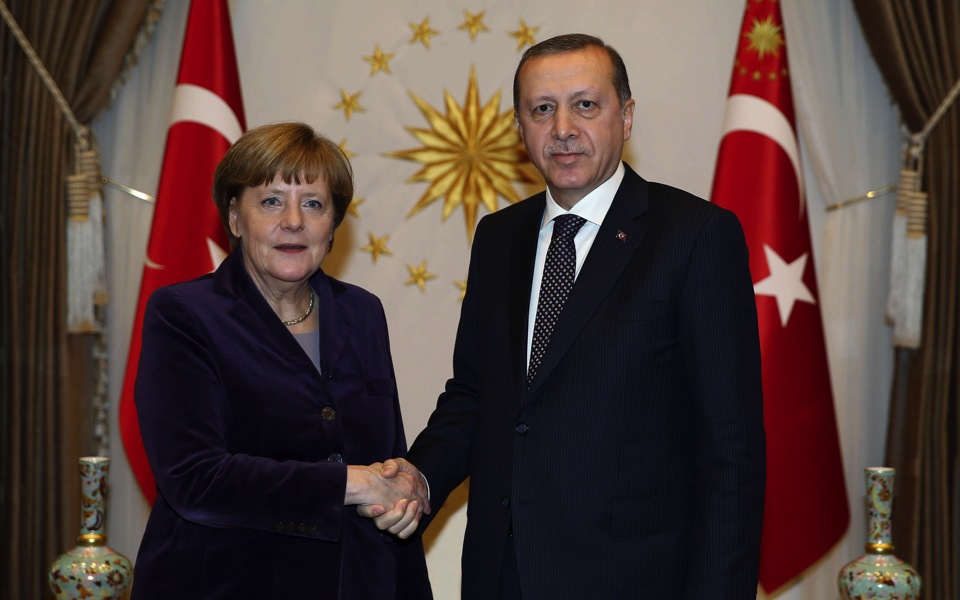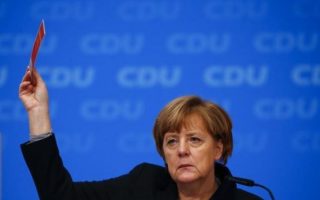Unity deficit

The request by Germany and Turkey for NATO involvement in the effort to stem the flow of refugees across the Aegean was expressed in a rather unorthodox manner. Of course it had certainly been preceded by talks between German Chancellor Angela Merkel and Washington, at least, as Berlin had not been given the green light to take the initiative on geostrategic matters. Nevertheless, the majority of NATO member-states must have been surprised by the move, and not just Greece.
Berlin’s tendency to act in a manner that may be seen as undermining its peers is something we witnessed just a few months ago, when a meeting between Merkel and Turkish President Recep Tayyip Erdogan heralded a rapprochement between Turkey and the European Union that the bloc had not agreed on but which was later backed by other member-states. Of course, the agreement that was reached at that meeting with regard to Turkey’s role in the refugee crisis has faced problems in its implementation, though that was to be expected.
Some will say Merkel’s most recent initiative was justified on account of the fact that Germany currently holds the rotating leadership of NATO Maritime Group 1, one of the alliance’s naval reaction forces. On the other hand, her actions can be interpreted in an entirely different light, as an expression of Berlin’s anxiety.
Merkel surprised the world a few months ago when she said Germany would take in 1 million Syrian refugees. The country needed a new injection of workers, totaling some 2 million over the next few years, though it was also guided by the humanitarian aspect of the issue.
The EU, however, is not a single entity with mutually guarded borders and not all other member-states need to refresh their work forces by taking in refugees. Even in Germany, the reaction to the massive influx has been intense in some parts. Meanwhile, walls are being erected on the bloc’s inner borders, which were supposed to have been abolished under the Schengen treaty.
On the matter of Greece, the government obviously dragged its feet when it came to implementing the decisions reached by the European Union. Also, Turkey’s stance was hardly surprising. Therefore, NATO’s involvement appears to be the only solution right now.
After all, it is the only organization that is effective and coordinated on an operational level, possibly because it is run by the US. Adverse to its involvement at first, Athens has now welcomed the use of NATO’s services, but the issue remains complicated and may lead to bigger problems. For the time being, what it has shown us is that there is indeed a deficit of unity in our united Europe.





